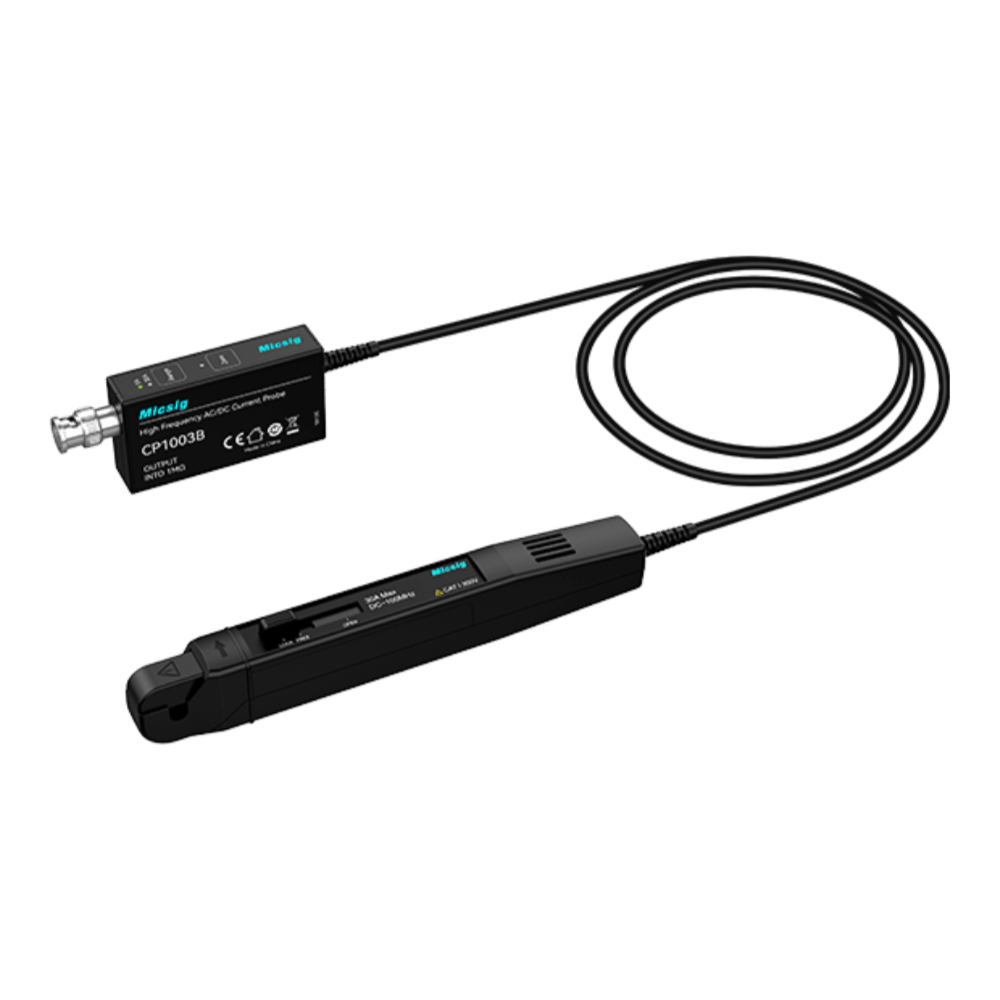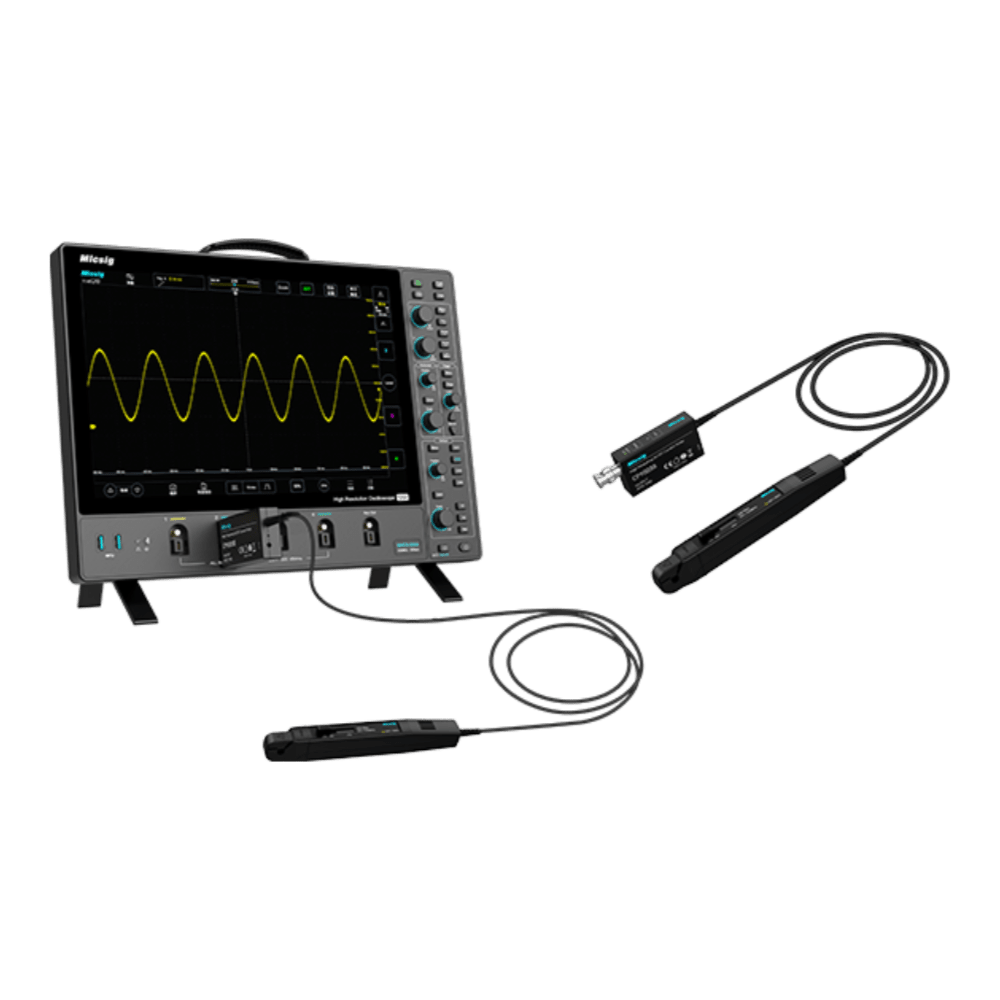Micsig
Micsig CP Series High Frequency AC/DC Current Probe - Precision Current Measurement for Electronic Design
Micsig CP Series High Frequency AC/DC Current Probe - Precision Current Measurement for Electronic Design
Couldn't load pickup availability
Key Features
- Dual-range 5A/30A design with 1% accuracy
- 100 MHz bandwidth for high-frequency current measurement
- 1mA resolution for precise small current detection
- One-button demagnetization and Auto-Zero calibration
- Standard BNC interface for universal oscilloscope compatibility
- Compact design for easy one-handed operation
- Overload protection with visual indicator for safe operation



Overview
The Micsig CP Series high-frequency AC/DC current probe is an essential tool for professional design engineers working on advanced electronic systems. With a bandwidth of up to 100 MHz and a dual-range design of 5A/30A, this probe delivers exceptional performance for measuring both continuous and peak currents with 1% accuracy.
Featuring a resolution of 1mA and a high signal-to-noise ratio, the CP Series excels in small current measurements. Its compact design allows for easy one-handed operation, making it suitable for various complex testing scenarios. The standard BNC interface ensures compatibility with a wide range of oscilloscopes, enhancing its versatility in laboratory and field applications.
The CP1003 incorporates advanced features such as simultaneous demagnetization and Auto-Zero functionality, activated with a single button press. An overload indicator provides added safety during measurements. This probe is particularly effective for capturing high-frequency signals above 20MHz and accurately observing surge currents in power systems.
Ideal for applications in electric vehicle design, switching power supplies, semiconductor devices, and power electronics, the Micsig CP Series is a crucial instrument for engineers pushing the boundaries of electronic innovation.



